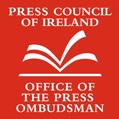Political advertising from Ireland to Switzerland
 Section 41(3) (also here) of the Broadcasting Act, 2009 provides:
Section 41(3) (also here) of the Broadcasting Act, 2009 provides:
A broadcaster shall not broadcast an advertisement which is directed towards a political end or which has any relation to an industrial dispute.
Earlier this week, at the annual conference of the Independent Broadcasters of Ireland, the Chairman of the IBI and CEO of Today FM, Willie O’Reilly called for the repeal of this provision, saying that it was open to challenge in the European Courts. According to the IBI press release:
…The ban on paid political advertising applies not just to political parties and election candidates but also to organizations, such as trade unions, promoting issues which are considered to be of a political nature.
There is arguably a strong legal case at European level against Ireland’s current ban in the context of freedom of expression as laid down in the European Convention of Human Rights. The current law is outmoded and inappropriate and it is questionable as to whether it is robust enough to withstand a legal challenge in the European Court.
The simple fact is that the internet has made the ban irrelevant. The Obama campaign was won online and all the party’s in the British election are committed to campaigning intensively online.

